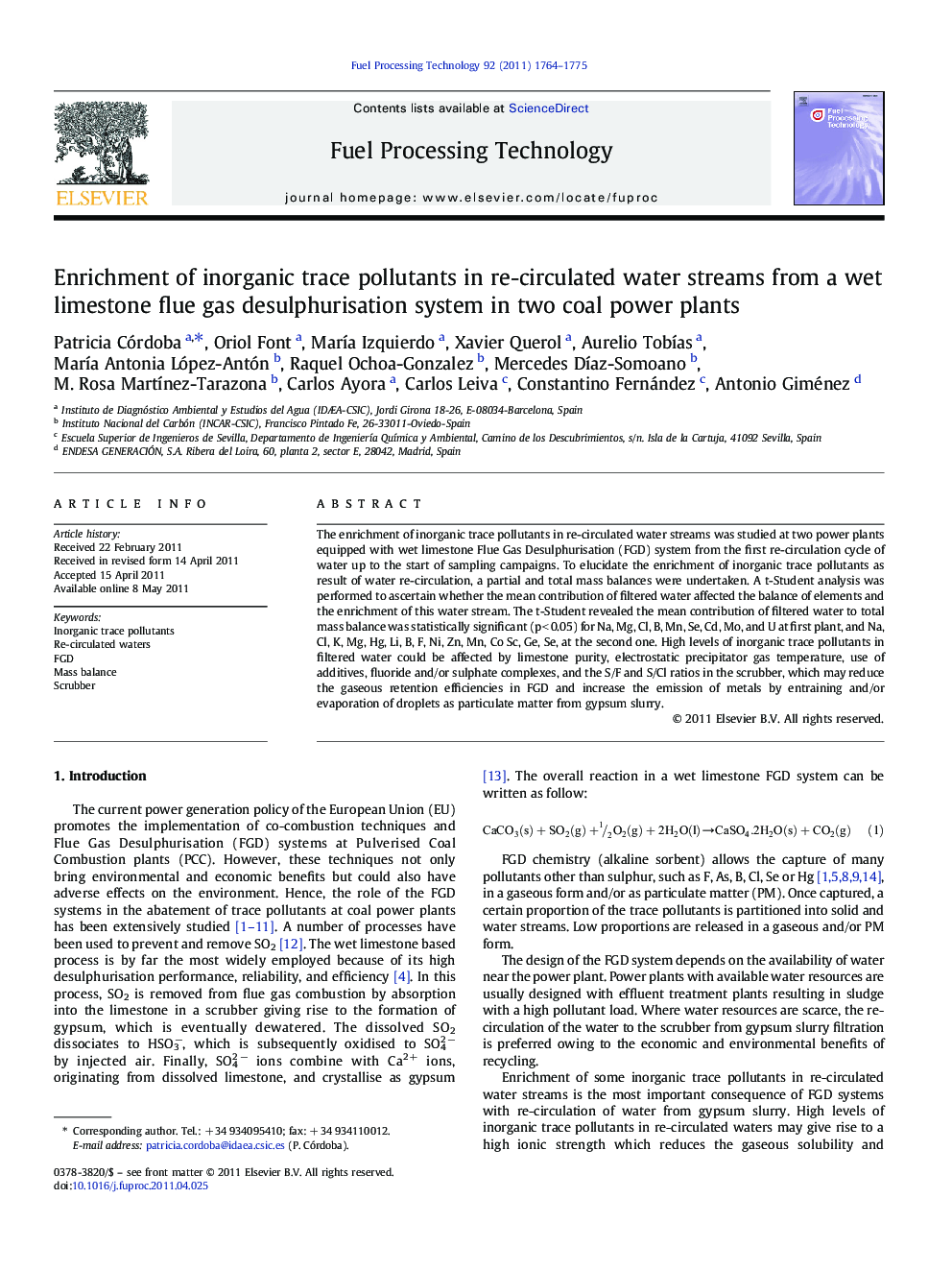| Article ID | Journal | Published Year | Pages | File Type |
|---|---|---|---|---|
| 210721 | Fuel Processing Technology | 2011 | 12 Pages |
The enrichment of inorganic trace pollutants in re-circulated water streams was studied at two power plants equipped with wet limestone Flue Gas Desulphurisation (FGD) system from the first re-circulation cycle of water up to the start of sampling campaigns. To elucidate the enrichment of inorganic trace pollutants as result of water re-circulation, a partial and total mass balances were undertaken. A t-Student analysis was performed to ascertain whether the mean contribution of filtered water affected the balance of elements and the enrichment of this water stream. The t-Student revealed the mean contribution of filtered water to total mass balance was statistically significant (p < 0.05) for Na, Mg, Cl, B, Mn, Se, Cd, Mo, and U at first plant, and Na, Cl, K, Mg, Hg, Li, B, F, Ni, Zn, Mn, Co Sc, Ge, Se, at the second one. High levels of inorganic trace pollutants in filtered water could be affected by limestone purity, electrostatic precipitator gas temperature, use of additives, fluoride and/or sulphate complexes, and the S/F and S/Cl ratios in the scrubber, which may reduce the gaseous retention efficiencies in FGD and increase the emission of metals by entraining and/or evaporation of droplets as particulate matter from gypsum slurry.
Research highlights► Inorganic trace pollutants are enriched in FGD waters at two power plants. ► Mass balances support the enrichment as result of water re-circulation. ► Use of additives, F− and SO42− complexes, S/F and S/Cl promote the enrichment. ► Water enrichment may reduce the gaseous retention efficiencies by FGD. ► Preventive/corrective measures should be studied and applied.
